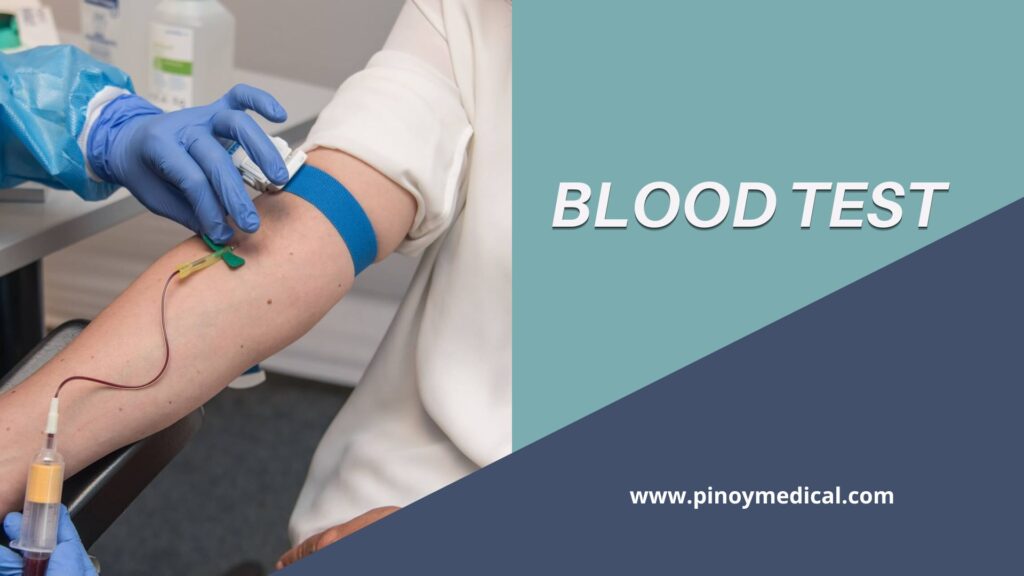Blood tests are essential for the diagnosis, follow-up, and treatment of a wide range of medical disorders. These tests examine blood’s various constituents, including its red, white, and platelet components as well as its glucose, cholesterol, and other marker levels. They aid in the evaluation of general health, illness screening, and treatment planning by medical experts. Blood tests are an essential component of preventive healthcare and individual well-being because of their rapid and precise results.
Blood Test Price
The nature and complexity of the test, the laboratory or medical facility administering it, and whether it’s carried out as part of a health screening package all affect how much blood testing costs. Comprehensive blood counts (CBCs) can cost anywhere from ₱300 to ₱1,000, while more specialist tests may run into several thousand. Costs between public and private healthcare providers may also vary. For a precise price, it is best to speak with the particular facility directly.

Popular Hospitals/Labs that Provide Blood Tests in the Philippines
The variety of examinations available, the caliber of the laboratory personnel, and the equipment’s and facility’s quality all have an impact on the cost difference in blood tests between hospitals. Public hospitals frequently offer more economical options, whereas private hospitals may demand greater fees since they have better amenities and cutting-edge technology. Demand and location can also have an impact on cost. Patients should take these things into account when deciding where to get blood testing done.
| Hospital/Lab | Location | Contact | |
| Manila Doctors Hospital | 667 United Nations Ave., Ermita, Manila PH | (+63)285580888 | [email protected] |
| Philippine Medical Diagnostics and Laboratory Center Corporation | 1932 A, Taft Ave, Malate, Manila, 1004 Metro Manila | 09778506929 | [email protected] |
| Asian Hospital & Medical Center | 2205 Civic Dr, Alabang, Muntinlupa, 1780 Metro Manila | (+63)288765755 | [email protected] |
| Philippine General Hospital | HXHP+36Q, Taft Ave, Ermita, Manila, 1000 Metro Manila | (02) 85548400 | [email protected] |
| Chinese General Hospital and Medical Center | 286 Blumentritt St., Sta. Cruz, Manila 1014 Metro Manila | (02) 87114141 | [email protected] |
| The Medical City | Ortigas Ave, Pasig, Metro Manila | (+63)289881000 | [email protected] |
| St. Luke’s Medical Center – Quezon City | 279 E Rodriguez Sr. Ave,Quezon City, Philippines | (+63)287230101 | [email protected] |
Video about Blood Test
FAQs
How do I prepare for a blood test?
Several factors, including the kind of test, you might need to follow your doctor’s instructions, fast for a predetermined amount of time, or refrain from taking a certain prescription to prepare.
What should I do if I feel faint or dizzy during a blood test?
During a blood test, if you feel lightheaded or feel faint tell the medical practitioner right away. They can help you lie down, give you some juice or water, and keep an eye on you until you feel better. It is not uncommon for some people to feel dizzy for a short while after having blood drawn.
Are there different types of blood tests available?
Indeed, there is a vast range of blood tests that may be performed; they include the complete blood count (CBC), lipid profile, glucose, liver function, renal function, and many more tests that offer important health information.
How long does it take to get the results of a blood test?
Blood test turnaround periods might vary based on the test’s severity and the volume of work being done in the laboratory. Results are usually accessible in a few days to a week.
How often should I undergo blood tests for routine check-ups?
Blood test frequency for normal physical examinations can vary based on age, health history, and general condition. A customized screening regimen can be suggested by your healthcare practitioner based on your specific risk factors and medical needs.
Are there any risks or side effects associated with blood tests?
Blood tests are generally risk-free, with only minor soreness or bruises possible at the site of blood collection. Although they are uncommon, serious problems can occasionally result from infection or severe bleeding.
What should I do if my blood test results are abnormal?
If the findings of your blood test are unusual, it is critical to consult your doctor again for additional assessment and advice. They can explain any necessary follow-up exams or treatments, analyze the results, and offer tailored advice on how to take care of your health.


